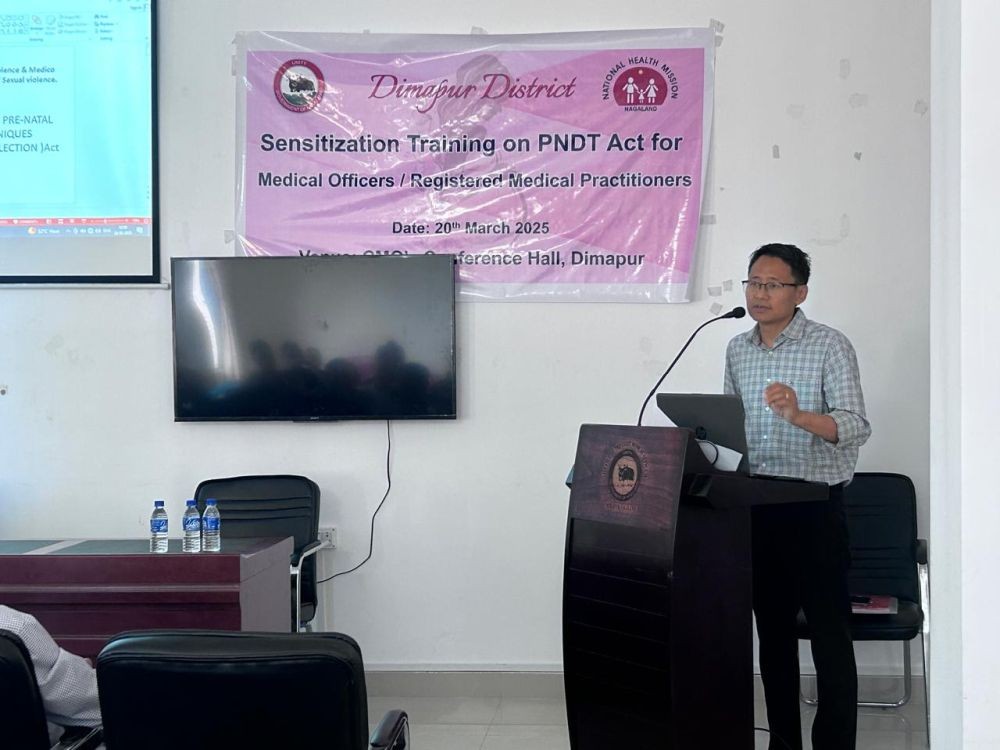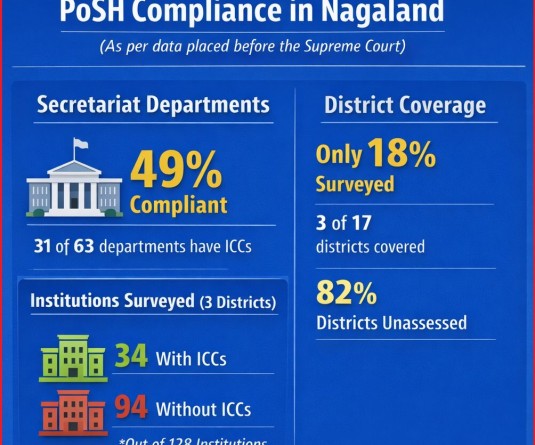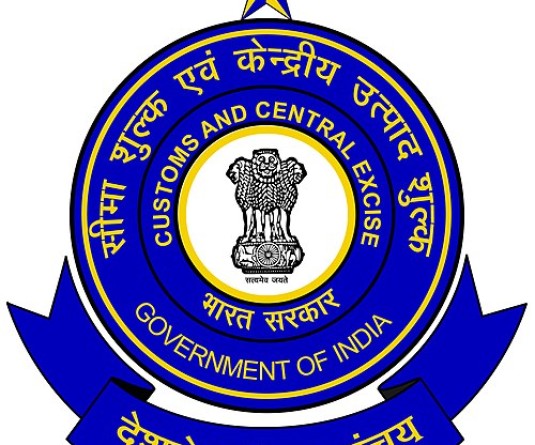Dr Botoho speaking at the sensitization training on the PC-PNDT Act & POCSO Act provisions in Dimapur on March 20.

DIMAPUR, MARCH 20 (MExN): A sensitization training on the Pre-Conception and Prenatal Diagnostic Techniques (Prohibition of Sex Selection) Act, 1994, was conducted for medical officers and registered medical practitioners on March 20 at the Chief Medical Officer’s Conference Hall, Dimapur.
The resource person for the training, Dr Botoho, a Surgeon at CHC Medziphema, briefed participants on the objectives of the PC-PNDT Act, 1994. He explained that the Act prohibits sex selection both before and after conception. The law also aims to regulate prenatal diagnostics for detecting genetic or metabolic disorders, chromosomal abnormalities, certain congenital malfunctions, or sex-linked disorders, while preventing misuse of such techniques for sex determination or female foeticide.
Dr Botoho emphasized that ultrasound clinics or laboratories must be operated by a sinologist, radiologist, or a registered medical practitioner with at least six months of training or one year of experience in sonology, along with completion of the Competency-Based Assessment test. He advised participants that individuals conducting ultrasounds on pregnant women should maintain complete records at their clinics.
He also highlighted the legal consequences for violating the Act. A person found in violation of the law could face imprisonment for up to three years or a fine of up to Rs. 10,000 for the first offense.
Subsequent offenses may lead to imprisonment for up to five years or a fine of Rs 50,000. For medical professionals, their names will be reported to the State Medical Council, and if charges are framed, their registration will be suspended for five years for the first offense and permanently removed for subsequent offenses.
Dr Botoho further stated that while female foeticide is not widespread in Nagaland, it is crucial for both the public and medical practitioners to be aware of the issue and avoid actions that contravene the PC-PNDT Act. He also mentioned that the District Authority registers ultrasound clinics, labs, and counseling centers only after conducting an assessment in accordance with the provisions of the Act.
Additionally, Dr Botoho sensitized the participants on the Protection of Children from Sexual Offences (POCSO) Act, 2012, which seeks to protect children under the age of 18 from sexual assault, sexual harassment, and pornography. He outlined the child-friendly procedures for reporting such cases and the reliefs available to child victims.
Under the POCSO Act, all hospitals, both private and public, are required to provide free medical treatment to victims. Victims are entitled to medical care even before an FIR is filed. It is mandatory for doctors to report to the nearest police station if they suspect or know that a child is a victim of sexual offense. Dr Botoho also explained the procedures for examining victims and the details that should be included in reports.
The training program was chaired by Dr Philip Kent, Deputy Chief Medical Officer, Dimapur, and the keynote address was delivered by Dr Temsu Longkumer, Chief Medical Officer, Dimapur.






